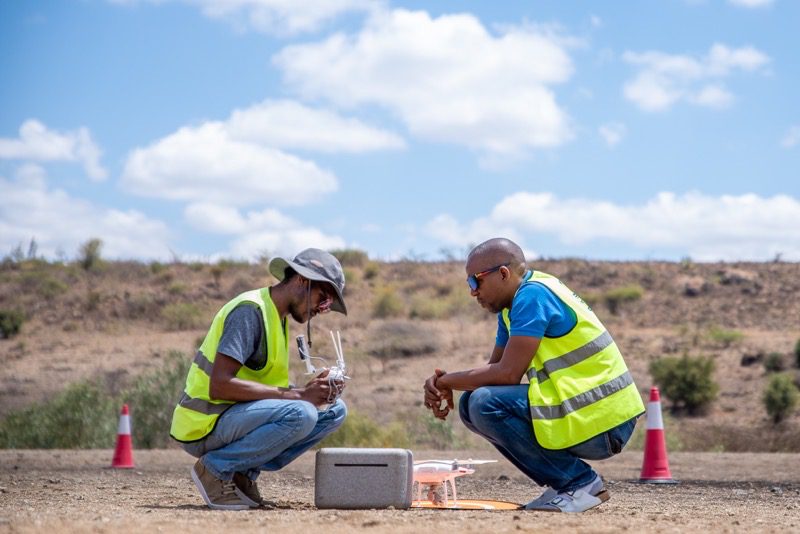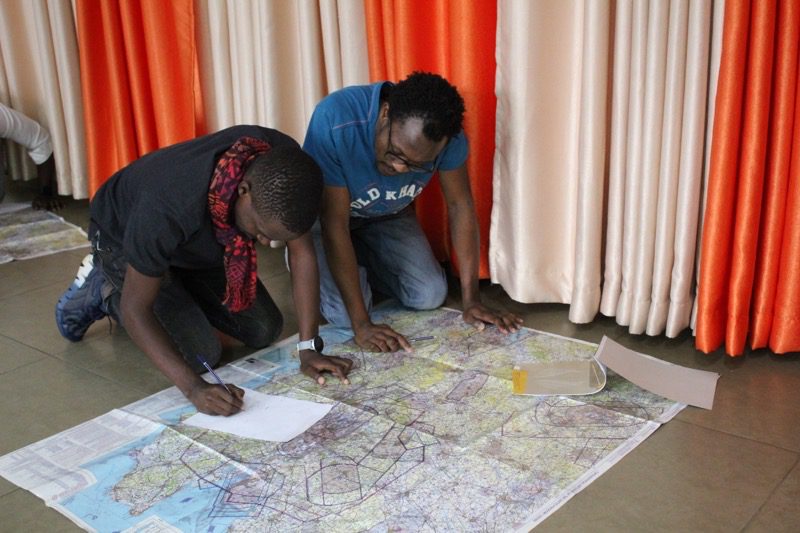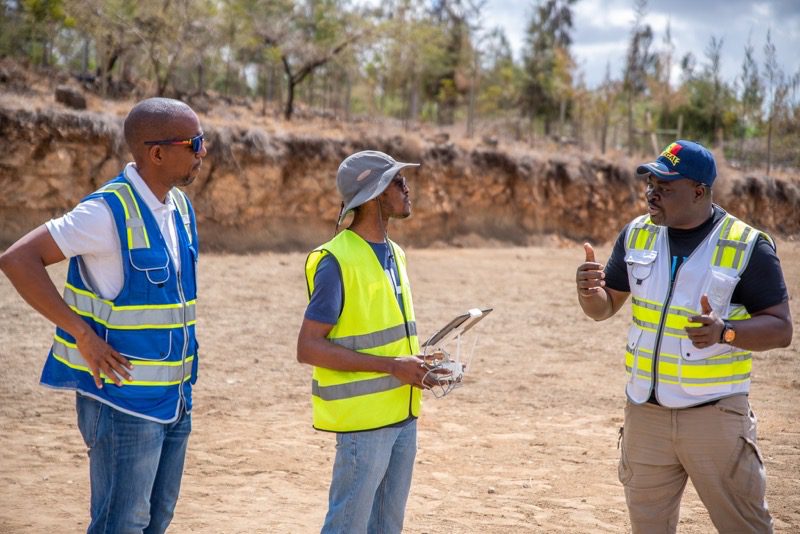
The Right Stuff: What Makes an Excellent Drone Pilot?
If drone pilots are already experienced, why offer the GVC, and why do holders of the GVC end up being excellent instead of just good drone pilots?
October 24th, 2022
By Angola, Kenya, Namibia, Senegal, Sierra Leone, and Tanzania Flying Labs
Training has always been at the core of what Flying Labs do. By doing so, we contribute towards democratizing data collection and analysis locally in the Global South. For example, six drone pilots from five different African nationalities earned General Visual line-of-site certifications this month in East Africa.

We have been offering this certification training since 2018 to allow experienced Drone Pilots to prove to their local civil aviation authorities (CAA) that they can operate their drones safely. Conversely, the GVC is a British-standard training recognized by many countries' CAAs around the world, including Tanzania.

The pilots undergo an intensive three-day theoretical component followed by a practical flight exam that tests various flight maneuvers and scenarios on their drones. But if they are already experienced pilots, why offer the GVC, and why do holders of the GVC end up being excellent instead of good drone pilots?
First, as the training emphasizes, a drone pilot is a pilot. The candidates learn terminology and general aviation laws and regulations. But they also learn that there is no exact definition of an excellent pilot; instead, it's those who follow safe operating procedures. Minute details like holding a controller to situational awareness are assessed and positively reinforced.

These candidates are not solely drone pilots. They are professionals in their respective countries who come from surveying, media, and agronomy backgrounds, to name a few, who will now be able to legally, safely, and ethically use drones for the betterment of their communities, what we need now after a four-year learning curve is to scale-up and harmonize the certification process in East Africa by localizing the GVC—similar to what has been achieved in Senegal and the West African Region by extension.
We thank WeRobotics and Kenya Flying Labs for supporting this training. We call upon our local CAAs and other stakeholders to support our efforts in professionalizing this nascent drone industry—which continues to grow by the day and gives so many opportunities to the youth economically and socially.
Category(s)
Recent Articles
View All »

Fixed-Wing, Rotary-Wing, and VTOL Drone Training with Japan Flying Labs
